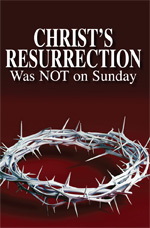When one simply goes by the literal application of the word, it is merely the name of a city that was along a trade route in Asia Minor. To understand the deeper meaning of the word “Laodicean,” and why Christ inspired its use in the context of Revelation 3, one must examine the Greek root words from which it is derived: Laos (Strong’s #2992, meaning “people”) and dike (Strong’s #1349, meaning “principle, decision”). In other words, as Christ showed in verse 20, Laodiceans trust in their ability to rule themselves, judging and deciding matters to the exclusion of Christ’s rule within His Church. God’s government only exists in His one true Church (Matt. 16:18; Eph. 1:22-23; Col. 1:18).
Philadelphia was also one of the cities along that same trade route, and Christ inspired the use of the name to apply to His true Church in the end time. The Greek word used in Revelation 3 is Philadelpheia (#5359). Again, by examining the root words, one can also understand the meaning and intent of Christ’s words regarding the Philadelphian Era of His Church: Philadelphos (Strong’s #5361, meaning “love as brethren). Philos (Strong’s #5384) means “friend, neighbor.” Adelphos (Strong’s #80) means “brother.” In other words, Christ defines Philadelphia as “the era of brotherly love.”
Hundreds of millions observe Easter in honor of Jesus Christ’s Resurrection—but is this biblical? Discover what the Bible does, and does not, teach about this holiday. Do not assume you know!
While newspapers, magazines and other news media report what happened, The Real Truth analyzes and explains the root cause of why events happen—why humanity is at a loss to solve today’s problems.


















